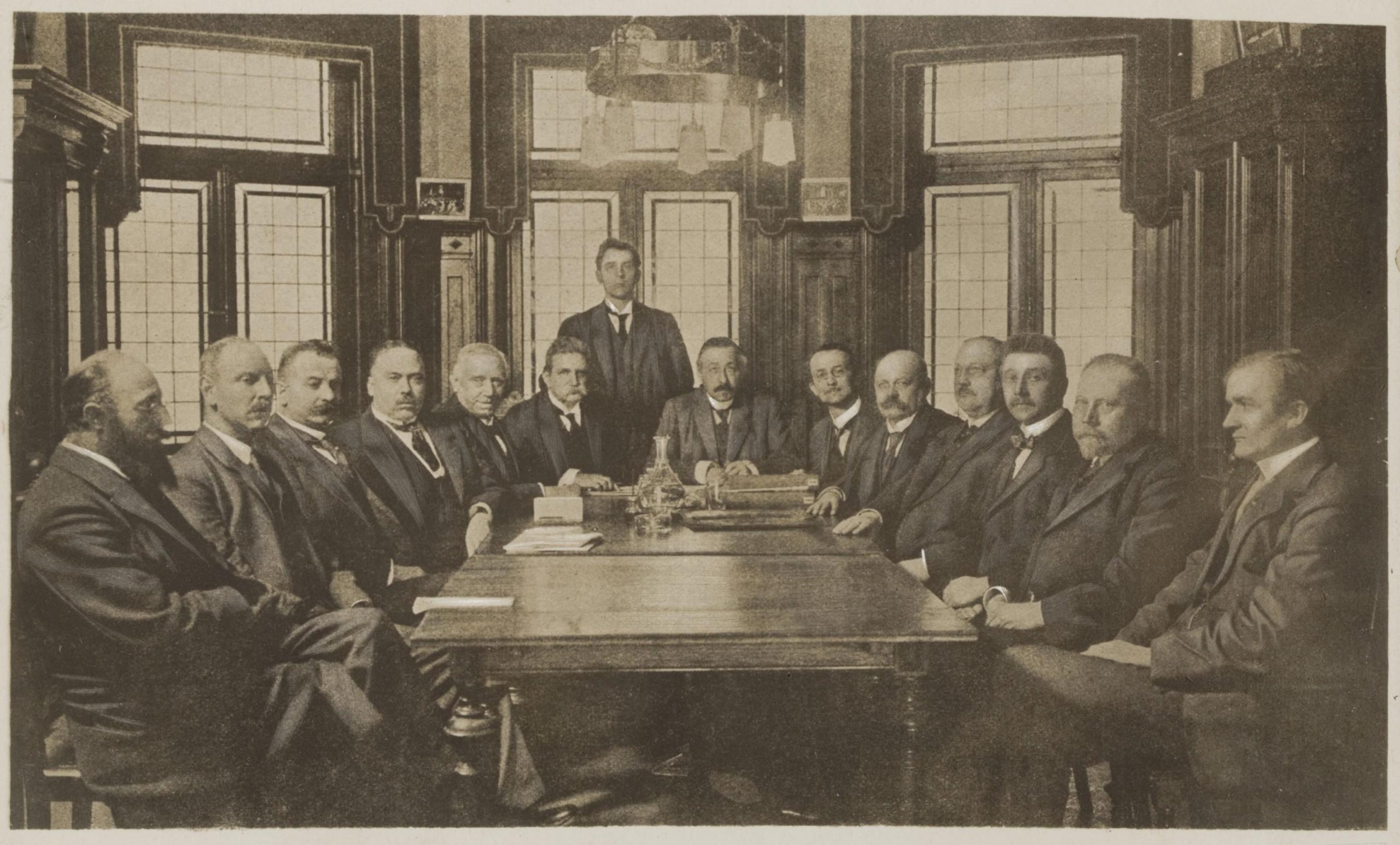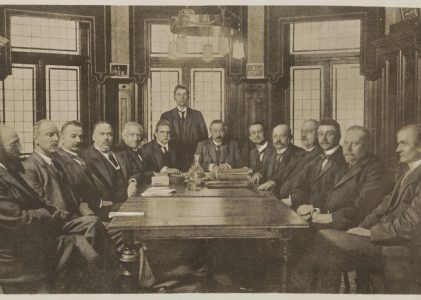Below you will find the concluding part to Clara Zetkin’s piece calling for a new international in August 1917, which was first published in the Women’s Supplement to the Leipziger Volkszeitung. The article is a remarkable one in three key respects. First, the ‘transformation’ of the situation in Russia that she identifies, as well as the related splits between the parties that took part in the Provisional Government and those that opposed it, forms the backdrop to a transformation in her own views on the political situation and the need for a new international. Second, the atypically tentative nature of some of her conclusions and proposals regarding the future of the revolutionary events in Russia highlights one important feature of international commentary on the Russian Revolution at this time: the lack of consistent or reliable information from across the borders. This should certainly be kept in mind when looking back and assessing the ideas of revolutionaries from this period: not least Rosa Luxemburg, for whom this represented an even greater problem as her pamphlet on the Russian Revolution was largely written in prison. Third, as I explain in more detail in a recent talk on Zetkin and World War I, in her correspondence Zetkin was adamant that revolutionaries should attend the planned Stockholm Conference of the Second International in September, and not just that of the ‘Zimmerwald Left’. In this article, however, she cautiously broaches the subject with a series of rhetorical questions, perhaps revealing greater uncertainty regarding how to respond to the Second International’s attempts to reconvene. (In the end this issue ceased to be of relevance, because as with several of its other planned international conferences during wartime, the Second International’s Stockholm event failed to materialise.) And Zetkin was ultimately right that it was the Russian revolutionaries who would pave the way for the Third International.
Until then, many thanks for all your support and greetings to our two new Patrons, Golden and Patrick S: welcome!
Have a great weekend!
BL
—————
After this, the Russian proletariat suffered a defeat in its struggle for the quickest possible end to the war. But the Russian socialists and Socialist Revolutionaries that supported, and were represented in, the Provisional Government have also been defeated. And this is both the most decisive and shameful part of the matter: these socialists did not go down fighting with honour, but rather abandoned the socialist principles they had once proclaimed and capitulated to Russian imperialism. This is the obvious conclusion to be drawn from both the behaviour of the governing socialists and the St. Petersburg Workers’ and Soldiers’ Council’s statement on these events.
The fact that these circles saw to it that our Swiss comrade [Robert] Grimm was driven out of the country on the absurd charge that he was a German agent acted as one of those little straws in the wind informing us where the breeze is coming from and where it is blowing. Now it is the corpses of proletarians, the arrests and the persecutions that proclaim the change that has occurred. Under the pressure of the confused situation, the governing socialists and the Socialist Revolutionaries obviously acted in the conviction that they were saving the revolution by placing their strength and the forces they commanded in the service of the bourgeoisie that is still in a leading position. But they paid a high price for this uncertain alliance – too high of a price, in fact: they sacrificed a principled socialist approach and placed the proletariat, the most decisive factor in driving the revolution forward, in chains. In doing so, they wounded the proletariat. And this wound could become deadly. After all, history shows us how every revolution was undermined whenever the ‘clever moderates’ sacrificed its most ambitious and enthusiastic fighters.
So it is that, on the eve of the Stockholm conferences, the men and women who uphold international socialism are confronted by a transformed and less promising situation than when the preparations for these meetings were being made against the backdrop of the thrilling revolutionary victories in Russia. If the news that we have received about the unfolding events in that country is true, then the majority of Russian socialists are no longer turning up to carry out the work of peace and of building the international with clean hands or with a pure banner. But the Russian socialists seem chosen to baptise the new international and to lead the people of various countries into fresh international actions for peace. Many a question is raised here.
In light of the turnaround in Russia, can the planned international socialist conference fulfil the hopes that millions of proletarian men and women from around the world have placed in it? Will it be able to bring about the unity of a socialist international, the cornerstone of which is a firm commitment to the clearly defined and formulated principles of socialism, as well as the steadfast will to act in line with these principles in all circumstances? Does it possess the moral authority to send the international, as a united body, into the battle fields of history as a vanguard of the proletariat that acts and struggles as one in the fight for peace? Is there not a danger that the conference will end without having achieved anything, and in even greater disagreements between the socialists of the various countries? And is there not also the risk that the meeting will turn out to be a garland of harmony and unity for the majority socialists, who will forgive each other for their sins against the principles of international socialism, only to be able to commit new sins against these principles, and who will place themselves on the ground of a social imperialism that is cloaked in patriotism?
If representatives of principled international socialism take part in the conference in order to use it as a tribune for their unwavering socialist convictions, will this educate the proletarian masses or only serve to confuse them? Are there reasons that should in principle forbid these representatives from taking part, or that render their participation practically pointless? Even more issues force themselves upon us in relation to these problems. The answer to these questions depends to a great extent on how things are actually unfolding in Russia and within the socialist majority there.
The third conference of the so-called Zimmerwalders that will take place ahead of the general conference will clarify the situation. To the former conference falls the significant task of gathering together internationally the socialists from all countries who have remained faithful to their principles. Here it can no longer be, and must no longer be, a matter of whether a third international should come into existence. A new international must not merely pay lip service to socialism or fabricate resolutions, but possess a will of iron and a readiness for action with clear aims. The international conference certainly meets at a time when all external circumstances are stacked against it, with the war restricting the practice of international socialism. But the unassailable force of the grand ideas of international socialism, the correctness of which is attested to by history, speaks in favour of the conference’s success. The discussions and resolutions of the Zimmerwalders will not pass the general international conference by without notice. Will these discussions bring us nearer to the peace that we so eagerly await? The matter will be decided by the answer that is given to the question of all questions: will the proletarian masses in all countries understand the situation that they are in and prove themselves to be active, driving forces of history? Every woman whose heart is moved by the socialist ideal is also responsible for developing this answer to such a vital question of history.


